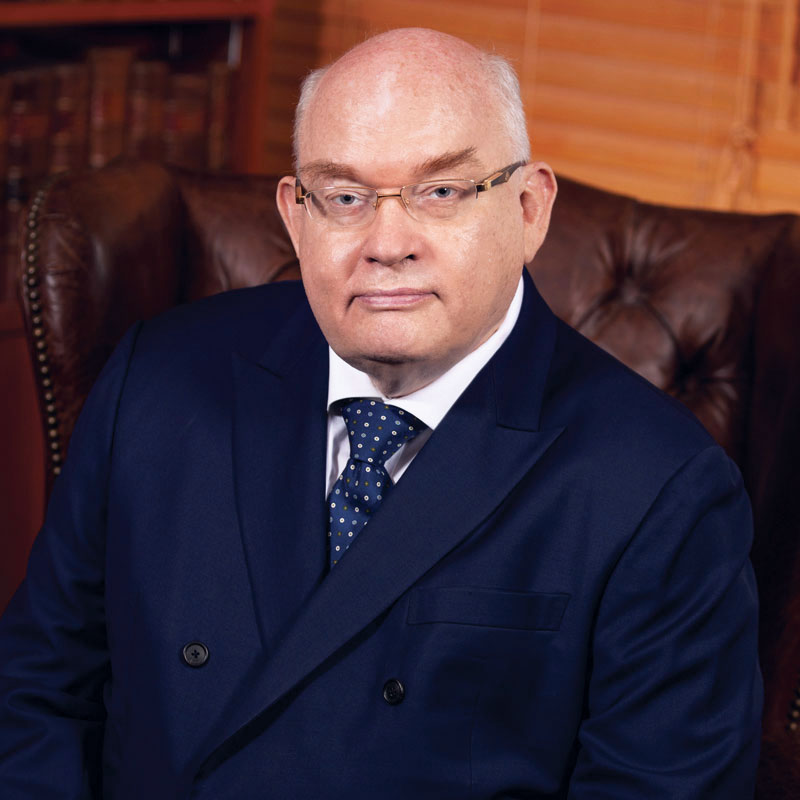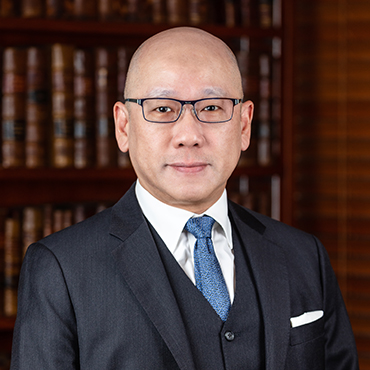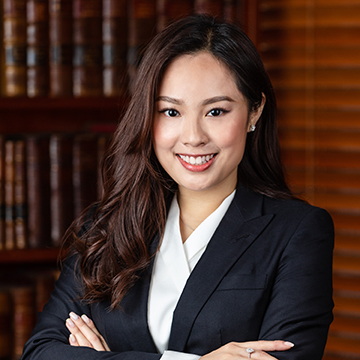HKSAR v Lai Chee Ying (黎智英) (Unauthorised Assembly) [2023] 4 HKLRD 484, [2023] HKCA 971 (Philip Dykes SC)
Philip Dykes SC and Chris Ng represented the 2nd applicant and the 5th applicant, and Robert Pang SC, Geoffrey Yeung, Simon Kwok and Velda Yau represented the 6th applicant and the 7th applicant, in HKSAR v Lai Chee Ying (黎智英) (Unauthorised Assembly) [2023] 4 HKLRD 484, [2023] HKCA 971.
Ds (D1–6 and D8 at trial) were convicted after trial of organizing an unauthorised assembly, contrary to s.17A(3)(b)(i) of the Public Order Ordinance (Cap.245) (the POO) (Charge 1), and knowingly taking part in an unauthorised assembly, contrary to s.17A(3)(a) of the POO* (Charge 2). At the material time, there was an authorised public meeting in Victoria Park held by the Civil Human Rights Front (the CHRF) to protest against “abuse of power by the police”. The offences arose from a procession from Victoria Park to Chater Road which followed the meeting. The CHRF had previously notified the Commissioner of Police of its intention to hold the meeting and a procession along the same route; and while there was no objection to the meeting, the procession was prohibited. None of Ds was the named organizer on the notification to the Commissioner. The Judge considered evidence including Ds’ arrival and conduct in Victoria Park and found that by carrying a large banner printed with the words “Stop the police and gangsters from plunging Hong Kong into chaos, implement the five demands” and agreeing to be the head of the procession and leading the direction in which the procession was to proceed, Ds must have organized the unauthorised assembly, and must have knowingly taken part in it in direct defiance of the ban. Ds also launched: (i) a systemic constitutional challenge against the charges against them on the basis that they constituted a disproportionate interference of the constitutionally guaranteed right to freedom of peaceful assembly under art.17 of the Hong Kong Bill of Rights and art.27 of the Basic Law; and (ii) an operational constitutional challenge against the implementation or enforcement of the charges based on the circumstances of the case. The Judge rejected both challenges. Ds sought leave to appeal against their convictions, contending that (i) the word “organizes” in s.17A(3)(b)(i) of the POO was not properly interpreted by the Judge; (ii) the defence of lawful authority or reasonable excuse (as is expressly provided in s.17A(3)(a)) should also be read into s.17A(3)(b); (iii) the Judge erred in finding that the mens rea of Ds was established; (iv) a systemic constitutional challenge on the subject offences was not, as held by the Judge, precluded by the decision of the Court of Final Appeal in Leung Kwok Hung v HKSAR (2005) 8 HKCFAR 229 (Leung Kwok Hung (2005)), in which a majority of the Court held, inter alia, that the statutory notification system in the POO was constitutional; and (v) the Judge did not take into account all relevant matters to enable her to properly analyse the issue of operational proportionality. D1, D2, D4 and D5 also sought to appeal against their sentences, which variously ranged from 8 to 18 months’ imprisonment for Charge 1 and 5 to 12 months’ imprisonment for Charge 2, to run concurrently.
Held, granting Ds leave to appeal against conviction on Charge 1, allowing their appeals and discharging the sentences for Charge 1 accordingly; and refusing to grant leave to appeal against convictions and sentences on Charge 2 and dismissing the appeals on Charge 2, that:
Appeals against conviction
Meaning of “organizes” in s.17A(3)(b)(i) of the POO
- (1) An “organizer” must have taken some responsibility for, or have done something active to plan, arrange or manage, the procession. Mere presence and participation were not enough, even if Ds were in a prominent position, leading the chanting of slogans and forming the “banner party”. As there was no evidence that the participants of the procession were members of the CHRF or that Ds held positions in the CHRF, the relationship to those behind them and the common understanding of their leadership could not be established. Hence it could not be said that Ds “organized” the procession within the meaning of s.17A(3)(b)(i) of the POO and the appeals on Charge 1 would be allowed (Flockhart v Robinson [1950] 2 KB 498 explained). (See paras.57–86.)
Systemic proportionality
- (2) The systemic proportionality challenge on the constitutionality of s.17A of the POO was precluded by the Court of Final Appeal’s decision in Leung Kwok Hung (2005). Although there was no specific reference to the constitutionality of s.17A in the judgment of Leung Kwok Hung (2005), the decision to uphold the scheme under the POO as constitutional included all aspects of the scheme including s.17A; and it could be read that the Court took into account the criminalisation and penalty in coming to its decision to uphold the convictions (HKSAR v Leung Kwok Hung [2004] 3 HKLRD 729, Leung Kwok Hung v HKSAR (2005) 8 HKCFAR 229 applied; Leung Kwok Hung v Secretary for Justice (No 2) [2020] 2 HKLRD 771 considered). (See paras.87–90.)
Operational proportionality
- (3) It was not necessary to conduct an operational proportionality exercise in the absence of any decisions by the CFA suggesting the contrary. Ds had deliberately flouted a constitutionally approved law, which had already built into its system the mechanism of proportionality, appeal process and if necessary, judicial review. The Court was bound by Leung Kwok Hung (2005). Additionally, none of the European cases involved a mandatory proportionality exercise to be conducted by the authority concerned, nor were they concerned with an ensuing protest or procession which was in violation of the law but said to require a further operational proportionality exercise (Leung Kwok Hung v HKSAR (2005) 8 HKCFAR 229 applied; DPP v Ziegler [2022] AC 408 considered). (See paras.92–96.)
- (4) The remaining grounds of appeal were also rejected. (See para.97.)
Appeals against sentence
- (5) The Judge’s approach to sentence could not be criticised as the Judge rightly determined first the seriousness of the offence and Ds’ individual roles and culpability before assessing the effect of his or her mitigating factors. This was a pre-planned procession which was intended to deliberately flout the law causing widespread disruption to the various carriageways. European authorities were of limited assistance given that they were not concerned with a notification regime such as that in the POO. Regard also ought to be given to the particular circumstances of Hong Kong. In light of this Court’s decision on Charge 1, the sentences in respect of that charge fell away, leaving the original sentences for D1, D2, D4 and D5 on Charge 2 (Leung Kwok Hung v HKSAR (2005) 8 HKCFAR 229, HKSAR v Tai Yiu Ting [2021] 2 HKLRD 899 considered). (See paras.100–107.)
[The above is excerpted from the headnote to the report in HKLRD.]




